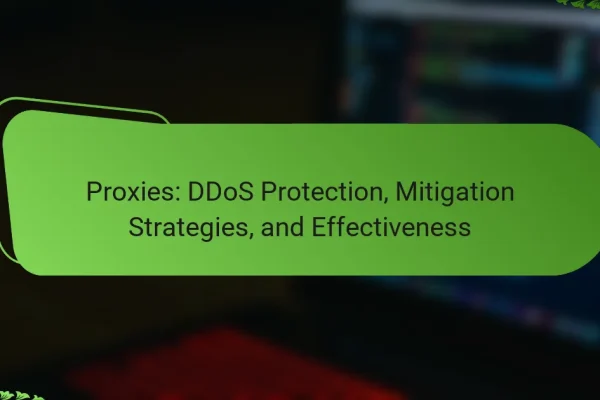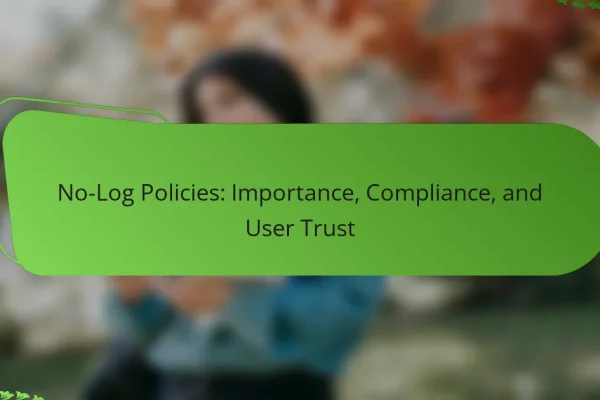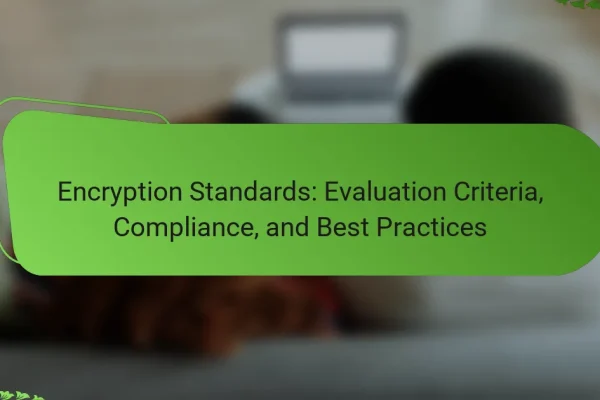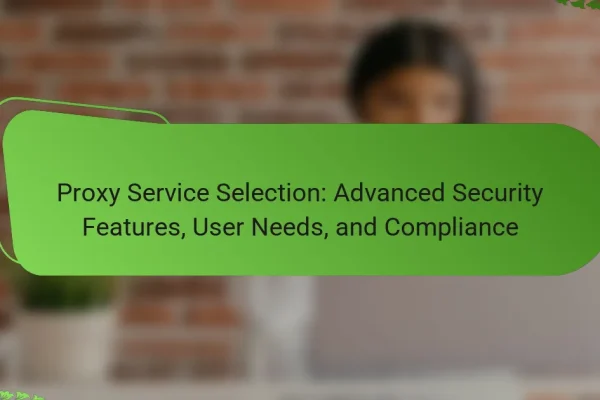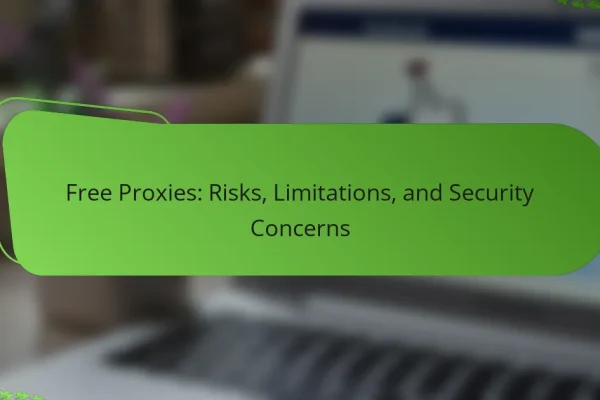What security features do proxy services offer?
Proxy services provide several key security features designed to enhance online privacy and protect sensitive data. These features include IP masking, data encryption, access control, malware protection, and traffic filtering, each contributing to a safer browsing experience.
IP masking
IP masking is a fundamental feature of proxy services that hides your real IP address. By routing your internet traffic through a proxy server, your original IP is replaced with that of the proxy, making it difficult for websites and online services to track your location or identity.
This feature is particularly useful for accessing geo-restricted content or maintaining anonymity while browsing. However, users should choose reputable proxy providers to ensure effective IP masking without compromising speed or reliability.
Data encryption
Data encryption protects your information by converting it into a secure format that can only be read by authorized parties. Many proxy services offer encryption protocols that safeguard data transmitted between your device and the proxy server.
Using a proxy with strong encryption can prevent unauthorized access to sensitive information, especially on public Wi-Fi networks. Look for services that utilize up-to-date encryption standards, such as AES-256, to ensure robust protection.
Access control
Access control features in proxy services allow users to manage who can connect to their network and what resources they can access. This is particularly important for businesses that want to restrict access to sensitive information or specific applications.
Implementing access control can help prevent unauthorized users from exploiting vulnerabilities. Consider using role-based access controls to tailor permissions based on user needs and responsibilities.
Malware protection
Many proxy services include malware protection to shield users from harmful software. This feature scans incoming traffic for potential threats and blocks malicious content before it reaches your device.
Choosing a proxy with integrated malware protection can significantly reduce the risk of infections and data breaches. Regularly updating your proxy service ensures you benefit from the latest threat intelligence and security measures.
Traffic filtering
Traffic filtering allows proxy services to analyze and manage data packets flowing through the network. This feature can block unwanted content, such as ads or harmful websites, enhancing both security and user experience.
Effective traffic filtering can help organizations comply with regulatory requirements by restricting access to inappropriate or non-compliant sites. Users should evaluate the filtering capabilities of a proxy service to ensure it meets their specific needs.
How do proxy services enhance online privacy?
Proxy services enhance online privacy by acting as intermediaries between users and the internet, masking users’ IP addresses and encrypting their data. This helps to keep personal information secure and reduces the risk of tracking by third parties.
Anonymity through IP rotation
Anonymity is achieved through IP rotation, where proxy services frequently change the IP addresses assigned to users. This makes it difficult for websites and advertisers to track user behavior over time. Many proxy providers offer rotating IPs at intervals ranging from a few minutes to several hours, depending on user needs.
Using rotating IPs can be particularly beneficial for activities like web scraping or accessing geo-restricted content, as it minimizes the risk of being blocked for excessive requests from a single IP address.
Secure browsing
Secure browsing is facilitated by the encryption capabilities of proxy services, which protect data transmitted between the user and the internet. This encryption helps safeguard sensitive information, such as passwords and credit card numbers, from potential eavesdroppers.
When selecting a proxy service, look for those that offer HTTPS support, as this ensures an additional layer of security during online transactions and communications.
Protection against tracking
Proxy services provide protection against tracking by masking users’ IP addresses, making it challenging for advertisers and data brokers to build profiles based on browsing habits. This is particularly useful in an era where online privacy concerns are increasingly prevalent.
To enhance protection against tracking, consider using proxy services that offer additional features like cookie management and ad-blocking capabilities. These features can further reduce the amount of data shared with third parties while browsing the web.
What are the best proxy services for security?
The best proxy services for security prioritize user privacy, data encryption, and reliable performance. Top contenders include NordVPN, Smartproxy, Bright Data, and Oxylabs, each offering unique features tailored to enhance online security.
NordVPN
NordVPN is renowned for its robust security features, including AES-256 encryption and a strict no-logs policy. It offers a large network of servers, which helps in maintaining fast and secure connections.
Users can benefit from additional features like CyberSec, which blocks malicious websites and ads, further enhancing online safety. NordVPN is suitable for both casual users and businesses looking for comprehensive security solutions.
Smartproxy
Smartproxy provides a user-friendly interface with a focus on anonymity and security. It offers residential and data center proxies, allowing users to choose the best option for their needs.
The service includes features like IP rotation and session control, which help maintain privacy while browsing. Smartproxy is ideal for web scraping and market research, where security is critical.
Bright Data
Bright Data, formerly known as Luminati, is a powerful proxy service that emphasizes transparency and compliance. It offers a vast pool of IP addresses, ensuring users can access content securely without revealing their identity.
With features like real-time data collection and advanced targeting options, Bright Data is particularly useful for businesses needing reliable data for decision-making. Its focus on ethical data usage aligns with growing privacy regulations.
Oxylabs
Oxylabs is a premium proxy service that caters to enterprises with high security and performance demands. It offers both residential and data center proxies, ensuring flexibility in usage.
Key features include dedicated account management and a comprehensive API, which facilitate seamless integration into existing systems. Oxylabs is well-suited for large-scale operations that require consistent and secure data access.
How to choose a secure proxy service?
Choosing a secure proxy service involves evaluating its encryption standards, data logging policies, and customer reviews. These factors help ensure your online activities remain private and protected from potential threats.
Evaluate encryption standards
Encryption standards are crucial for safeguarding your data while using a proxy service. Look for services that utilize strong protocols like AES-256, which is widely regarded as secure. A good proxy should also support HTTPS connections to encrypt your web traffic.
Check if the proxy service offers additional features like SSL certificates or support for VPN protocols. These can enhance your security by providing multiple layers of encryption, making it harder for unauthorized parties to access your information.
Check for data logging policies
Understanding a proxy service’s data logging policies is essential for maintaining your privacy. Opt for providers that have a strict no-logs policy, meaning they do not store any information about your online activities. This ensures that even if requested by authorities, there is no data to hand over.
Read the service’s privacy policy carefully to see what data, if any, is collected and how it is used. Some services may log minimal data for operational purposes, but it should not include personally identifiable information or browsing history.
Assess customer reviews
Customer reviews can provide valuable insights into the reliability and security of a proxy service. Look for feedback on platforms like Trustpilot or Reddit to gauge user experiences regarding security and performance. High ratings and positive comments often indicate a trustworthy service.
Be cautious of services with numerous negative reviews, particularly those mentioning security breaches or poor customer support. A proxy service with a strong reputation is more likely to prioritize your security and provide a reliable experience.
What are the risks of using proxy services?
Using proxy services can expose users to several risks, including data leaks and unreliable providers. These issues can compromise user privacy and security, making it essential to choose proxies carefully.
Data leaks
Data leaks can occur when a proxy service fails to adequately protect user information. This can happen if the proxy does not encrypt traffic or if it logs user activity, which may then be accessed by unauthorized parties.
To minimize the risk of data leaks, select proxy services that offer strong encryption protocols, such as HTTPS or SOCKS5. Additionally, look for providers that have a strict no-logs policy to ensure that your browsing history remains private.
Unreliable providers
Unreliable proxy providers can lead to slow connections, frequent downtime, and potential security vulnerabilities. Many free or low-cost proxies may not have the resources to maintain high-quality service, which can negatively impact user experience.
When choosing a proxy service, consider investing in reputable paid options that offer reliable uptime and customer support. Research user reviews and performance benchmarks to ensure that the provider meets your needs effectively.







